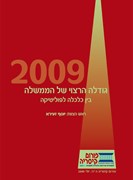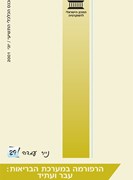

Publications Regarding Healthcare
Articles
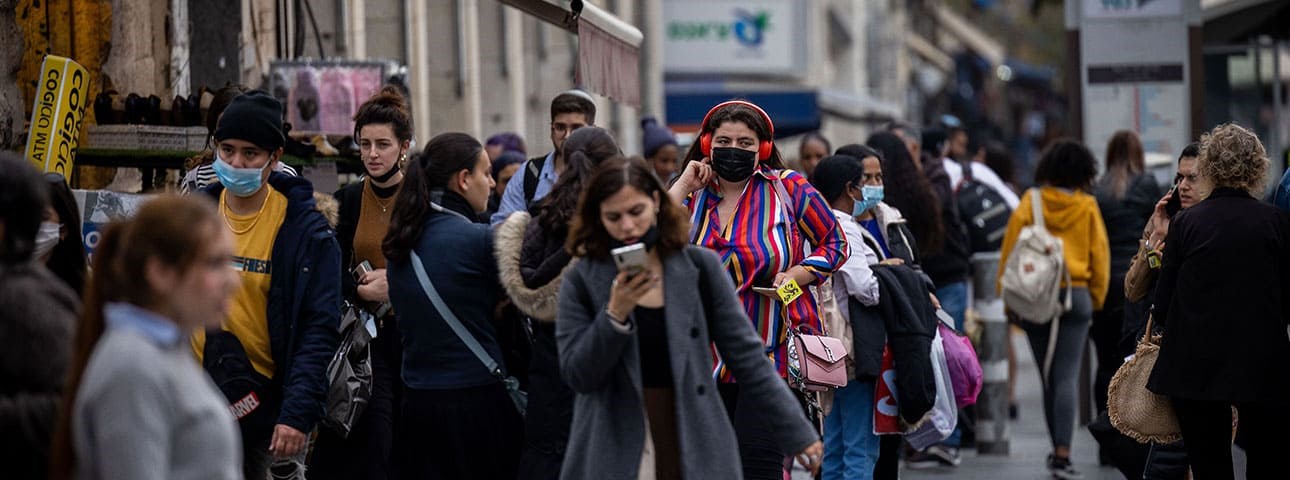
Israelis Out of Work as a Result of COVID-19
Written By: Daphna Aviram-Nitzan, Yarden Kedar
New IDI survey finds that 250,000 Israelis, who are not working, and not receiving unemployment allowances, might soon be forced to rely on supplemental income support.

Is Israel Also Experiencing a “Great Resignation”?
Written By: Daphna Aviram-Nitzan, Roe Kenneth Portal
The "great resignation" that has swept the US and UK in recent months is one of the symbols of the recovery from the pandemic. Is this trend taking place in Israel too?
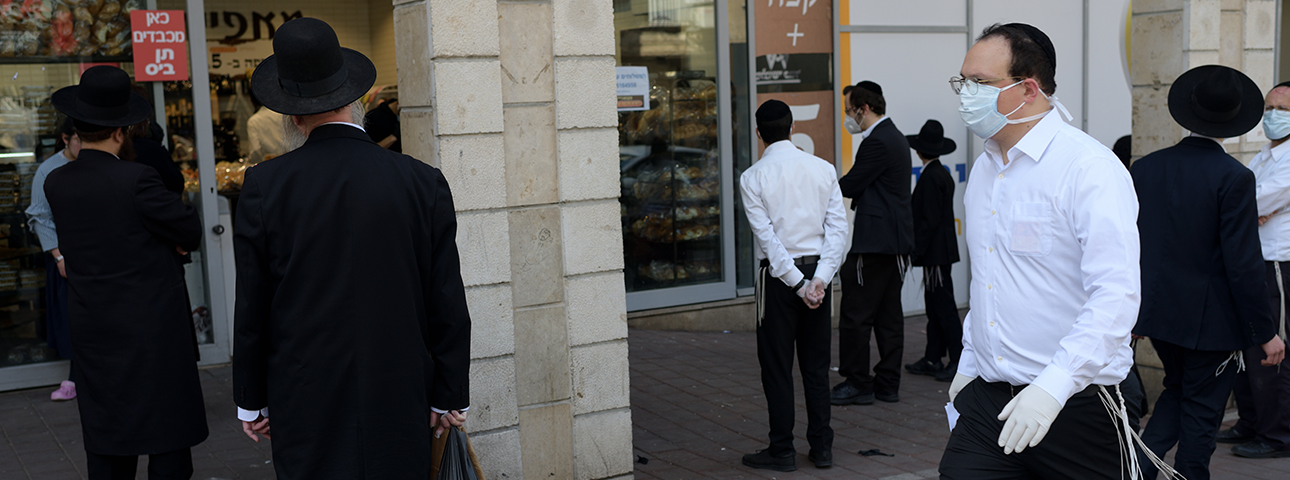
Stabilizing the Economy and Combatting COVID by Imposing Restrictions
Written By: Prof. Tamar Hermann, Dr. Or Anabi
After more than 100 days in office – Israelis want the new government to prioritize stabilizing the economy and combatting COVID by imposing restrictions on the unvaccinated

FDA Booster Decision Disappoints all Sides
Written By: Dr. Tehilla Shwartz Altshuler, Brigadier General (res.) Itai Brun
The FDA ruling regarding the Pfizer booster shot may have not been completely in-line with the Health Ministry's recommendation, but the open and transparent decision-making processes employed by the American agency holds important lessons for Israel

Using Electronic Bracelets
Written By: Dr. Tehilla Shwartz Altshuler
Electronic bracelets should be used only after restricting access to information and ensuring its security

Wave No. 3 is Here – We Must Learn our Lesson
Written By: Ron Tzur, Prof. Nissim Cohen
Politicians and healthcare practitioners alike must learn from their experience and formulate strategy before it is too late.
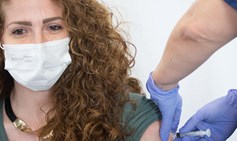
Covid-19 Vaccines – How to Encourage Public Cooperation: Explainer
Written By: Prof. Yuval Feldman
With the vaccines for Covid-19 soon to be made available and in light of the high rates of Israelis who do not want to be the first to get the vaccine - IDI expert Prof. Yuval Feldman explains how to encourage public cooperations in getting COVID-19 vaccines.
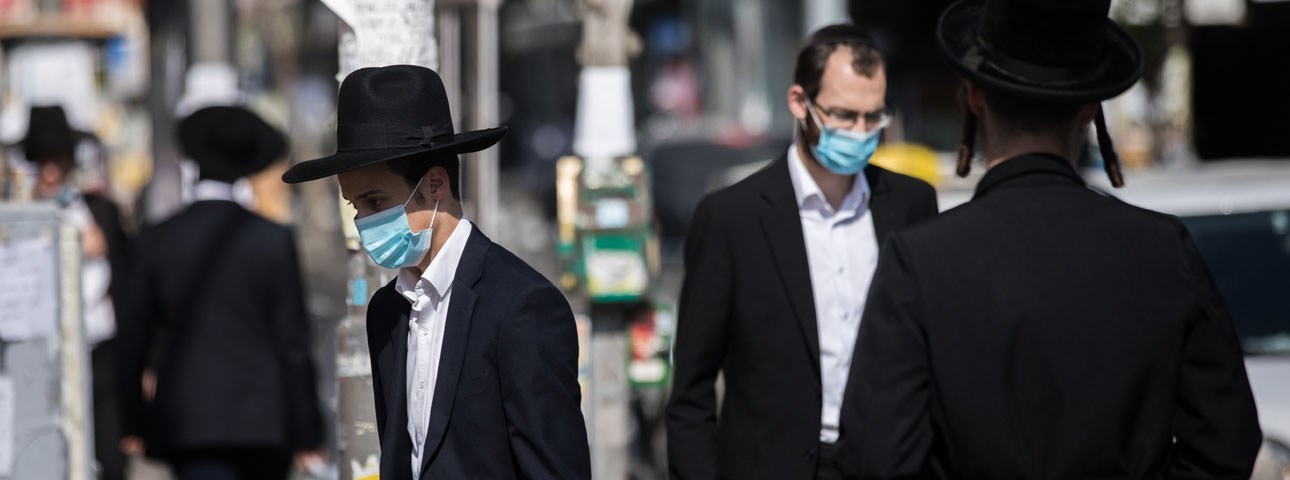
Haredim Trust Rabbis More Than the Health Ministry on COVID-19
Written By: Prof. Tamar Hermann, Dr. Or Anabi
62% of Haredim have very little or no confidence in Prime Minister Netanyahu's Handling of COVID-19; 60% think decision makers are guided mostly or only by political concerns
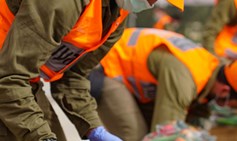
National Security and Democracy Conference Day 1
IDI's annual conference on National Security and Democracy, held in partnership with the Konrad Adenauer Stiftung (Israel office), convened top officers and academic experts to discuss the changing relations between the IDF and Israeli society and draw lessons for the future from the military’s unprecedented involvement in the civilian COVID-19 crisis.
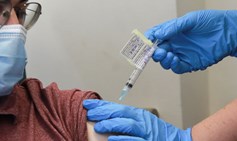
Israelis Wary about Partaking in First Round of Vaccinations
Written By: Prof. Tamar Hermann, Dr. Or Anabi
This survey is the fourteenth in a special series examines the public attitudes towards government policies relating to the coronavirus outbreak and to the economic fallout from the pandemic

Ultra-Orthodox Non-Compliance Rests on Fear
Written By: Dr. Shuki Friedman
In the second wave of the pandemic it seems that many ultra-Orthodox rabbis are assigning higher priority to 'customer retention' than to the clear halakhic imperative to preserve health and life

An Organized Civil Disobedience Campaign
Written By: Prof. Yedidia Z. Stern
Rabbi Kanievsky’s decision to disregard the law and open ultra-Orthodox schools is the first time in Israeli history that we are seeing something that approaches a call for mass civil disobedience orchestrated by a key public figure.
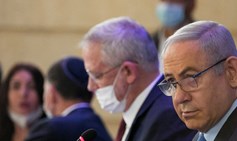
Majority Think 2nd Lockdown was Politically Motivated
Written By: Prof. Tamar Hermann, Dr. Or Anabi
55 percent of Israelis believe that the second lockdown was solely or mainly politically motivated; The majority of the public continues to express confidence in Prof. Gamzu; Continued increase in public concern about the economy
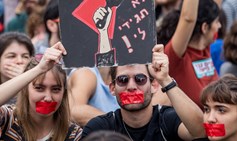
"A Society without Culture is a Needy Society"
At a session of a conference on "Policy or Culture?” held by IDI and the Sapir Academic College, Minister Chili Tropper spoke of the need for culture to fortify society and not fall victim to divisive discourse
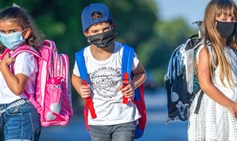
Corona Survey #11
Written By: Prof. Tamar Hermann, Dr. Or Anabi
IDI's latest coronavirus survey found 45% of Israelis pessimistic about the country's ability to overcome the COVID-19 crisis. The survey also found that if opened, 74% of Israelis plan on sending their children to school
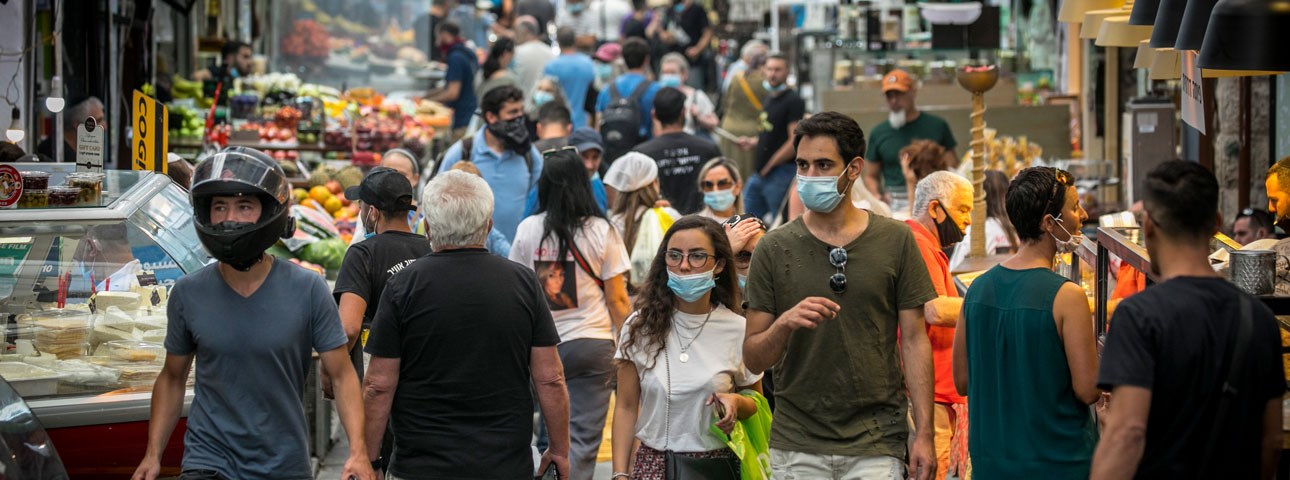
Israel in Times of Corona
Written By: Prof. Tamar Hermann, Dr. Or Anabi
A special survey, the tenth in this series, by the Guttman Center for Public Opinion and Policy Research at the Israel Democracy Institute examined public opinion about government policies relating to the coronavirus outbreak and the economic fallout from the pandemic.
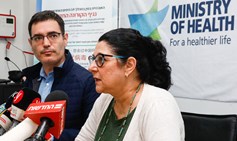
Most Israelis Trust Government Health Officials on Corona
IDI Coronavirus Survey finds that nearly half the population is pessimistic about Israel’s economic prospects

Fighting the Coronavirus is Impacting Our Privacy
Written By: Dr. Tehilla Shwartz Altshuler
Information is power. Governments and private entities that have access to vast troves of information have vast power.

Coronavirus and Haredi and Arab Communities
Written By: Yair Sheleg
In recent years, many comparisons have been made between two communities in Israel - the ultra-Orthodox and Arab Israelis. The coronavirus crisis has brought previously held assumptions into question.

Public Health and the Ultra-Orthodox Community in Israel
Written By: Dr. Ariel Finkelstein
The lack of exposure to mainstream media outlets and the internet limits this community's access to Health Ministry instructions on the coronavirus.
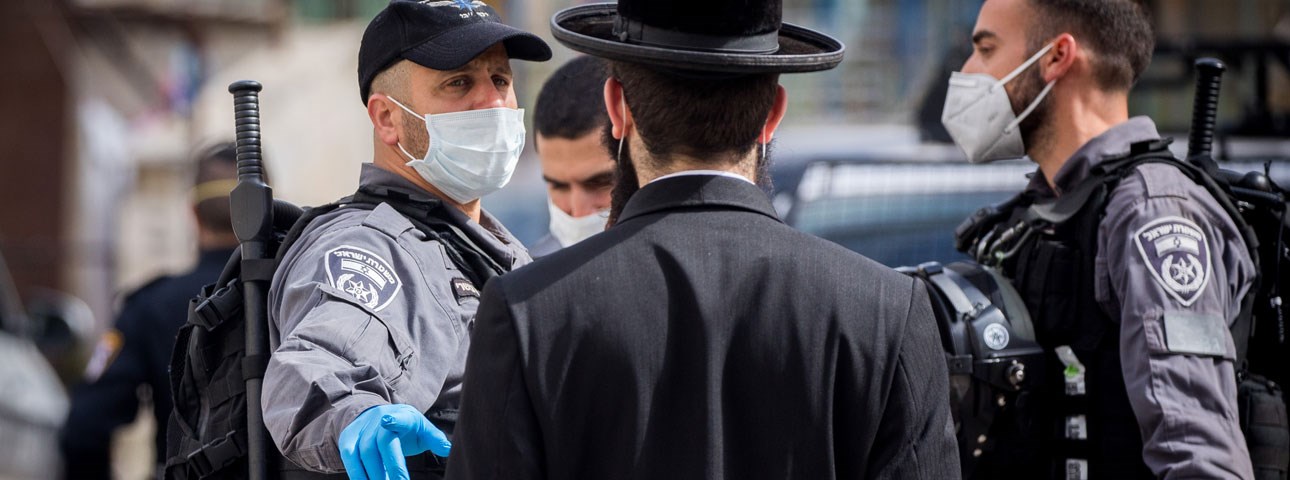
The Yom Kippur of the Ultra-Orthodox
Written By: Prof. Yedidia Z. Stern
The tragic results of initial faulty advice from leading rabbis is a wake-up call to Haredi Jews to start making their own decisions.

Ultra-Orthodox Society in Israel and the Coronavirus Pandemic
Written By: Dr. Gilad Malach
Dr. Gilad Malach held a press briefing focused on the coronavirus’ effect on the ultra-Orthodox in Israel and what might be the long term implications for employment, use of technology and the attitude towards official state authorities in this often isolated community.

Zoom's Scandalous Privacy Policy
IDI Expert Dr. Tehilla Shwartz Altshuler: "Now is the time for the appropriate regulatory authorities to act and protect the privacy of Zoom's users."

Curbing the Coronavirus Among the Ultra-Orthodox: Explainer
Written By: Dr. Gilad Malach, Leehe Friedman
How can we curb the spread of the coronavirus in the ultra-Orthodox community in Israel? IDI experts explain
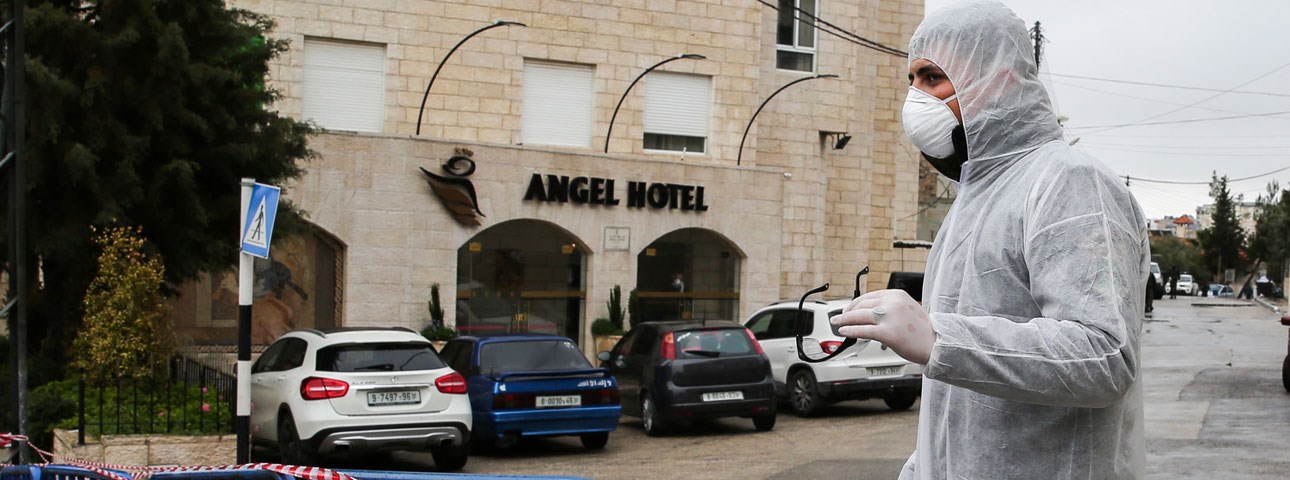
Coronavirus Special Survey
Special Coronavirus survey by the Israel Democracy Institute takes the Israeli pulse on the impact of the Coronavirus finds that 40% of Israelis feel they are experiencing high levels of stress and 65% are worried about their financial future.
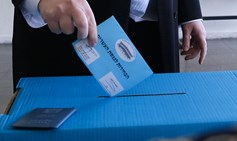
30% of the Public Predicts a Fourth Election
With only a few days to the Elections, the February Israeli Voice Index finds that Jewish Israelis are Paying Less Attention, while a Majority of Arab Israelis are Following with the Same or Increased Interest. 30% of the Public Predicts a Fourth Election.

Protecting the World’s Most Valuable Commodity
Written By: Dr. Tehilla Shwartz Altshuler
The sharing of medical data has extremely positive potential. It can help with predicting rare diseases, early detection and more exact diagnoses than are possible with existing medical capabilities.

Social Justice in Jewish-Arab Relations in Israel
Written By: Shlomit Kagya, Ola Nabwani, Avital Manor, Nabil Khattab, Sami Miaari
An article by members of IDI’s Arab-Jewish Relations research team, which explores the lack of social justice for Israel’s Arab minority in three areas: employment, healthcare, and the public sphere.

Abstract: Health Inequality of Arabs and Jews in Israel
Written By: Shlomit Kagya, Nabil Khattab
A paper that reviews the state of research on health inequality between Jews and Arabs in Israel in order to develop a comprehensive research program that will contribute to the understanding of the factors leading to inequality.

In God They Trust
Written By: Dr. Gilad Malach
Dr. Gilad Malach, Director of the Ultra-Orthodox in Israel Program at the Israel Democracy Institute, discusses how the COVID pandemic has affected the internal dynamics of Israel's Haredi communities, their relationship with their political leadership and with government as a whole.

The Haredi Fears Behind the Opening of Yeshviot Amid COVID-19
Written By: Dr. Asaf Malchi
For many, the spiritual and educational dangers inherent in leaving large numbers of young people with no binding religious framework outweigh the health risks in keeping these institutions open

Don’t Let the IDF Sink into the Coronavirus Quicksand
Written By: Dr. Idit Shafran Gittleman, Prof. Amichai Cohen
The decision to call in the IDF is dealing a double blow to the country - it is both ineffective and is damaging the public’s trust in the IDF

Privacy Doesn’t Have to Die
Written By: Dr. Rachel Aridor-Hershkovitz
Privacy doesn't have to be sacrificed in order to protect citizens from the coronavirus - it too must be protected


